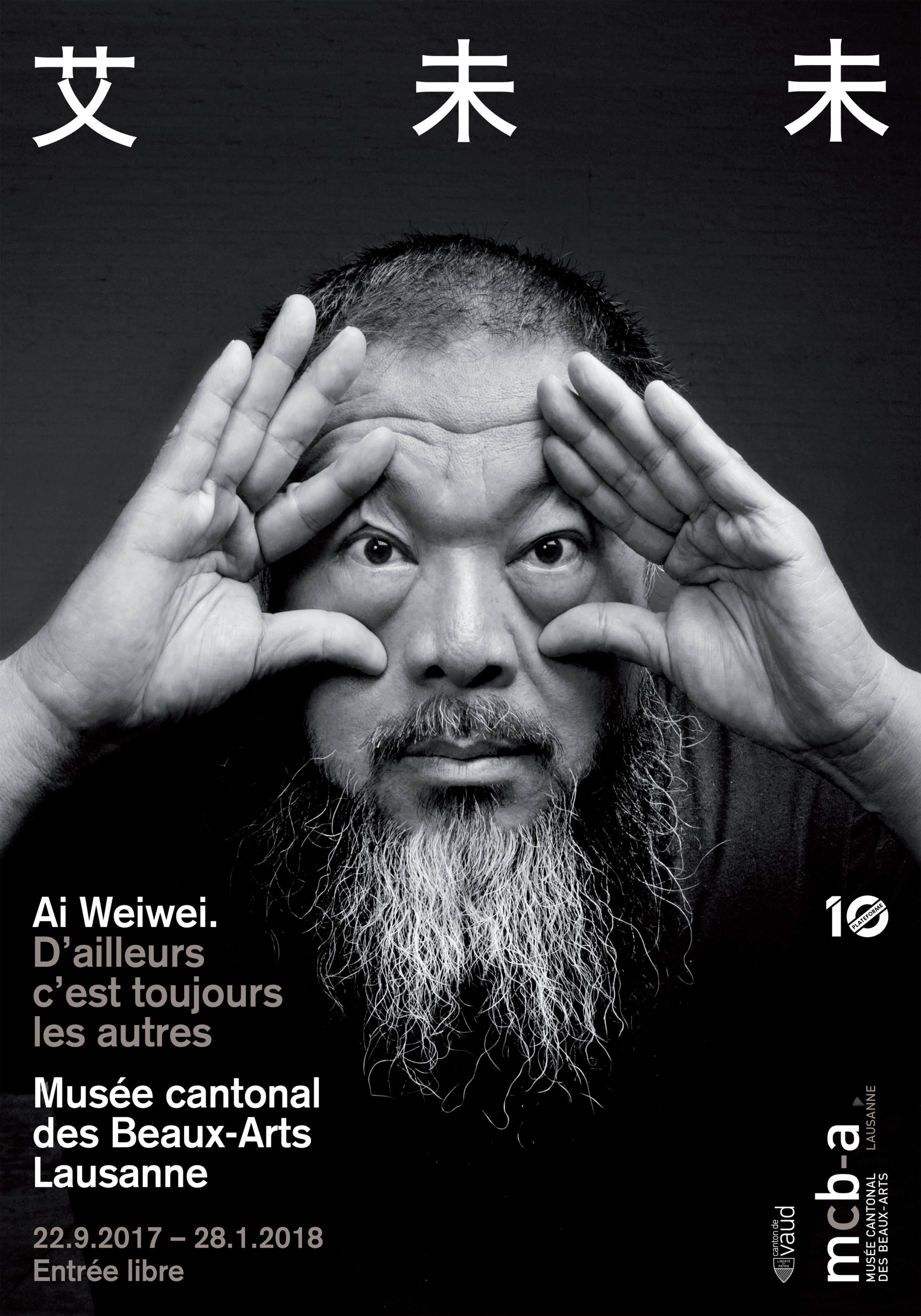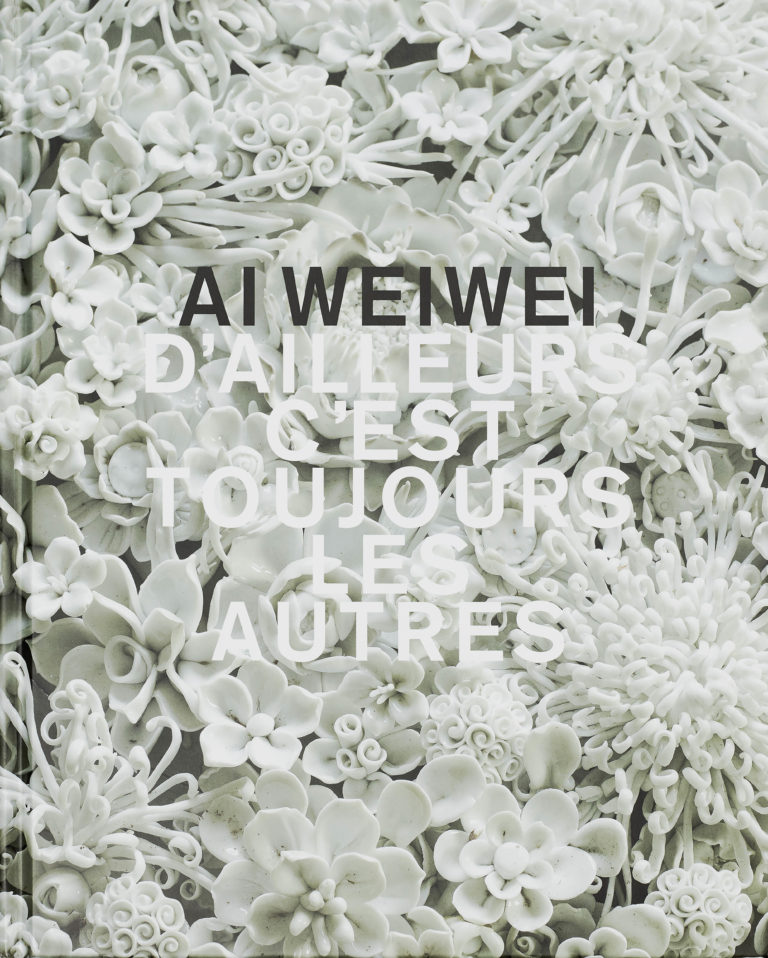
Ai Weiwei
D’ailleurs c’est toujours les autres
Recent and monumental works: Ai Weiwei, one of the most significant and influential artists of the last decade, returns to Switzerland. After his very first European solo exhibition at the Bern Kunsthalle in 2004, the Chinese artist has once again accepted an invitation from Bernard Fibicher, director of the Musée cantonal des Beaux-Arts de Lausanne (MCBA).
For this exhibition – the last at MCBA on its present site, before the move to PLATFORM 10 – Ai Weiwei is throwing a party, with works spilling out of the exhibition rooms into the Palais de Rumine’s public spaces and the museums of archaeology and history, zoology, geology, and money, as well as the State and University Library.
Running from 22 September 2017 to 28 January 2018, the exhibition Ai Weiwei: D’ailleurs c’est toujours les autres is bringing together more than 40 items dating from 1995 up to the present: works in porcelain, wood, marble, jade, crystal, bamboo, and silk, together with wallpaper, photographs and videos, all testifying to the rich variety of the artist’s work and his profound knowledge of his country’s cultural heritage. At the same time – and here we detect a spirit akin to that of Marcel Duchamp – in a playful or iconoclastic way he rechannels his traditional motifs, methods and materials into a critique, overt or covert, of the Chinese political system. His most recent works bear on the troubling complexity of international matters including economic dependency and refugee flows. This mcb-a event hails a true all-rounder: a remarkable visual artist, an encyclopedic mind, a gifted transmitter of ideas and a man coming to grips with the major issues of today’s world. Ai Weiwei may well be the first truly «global» artist.
Son of the famous poet Ai Qing, Ai Weiwei was born in Beijing in 1957. Ai grew up in Xinjiang province, where his father was sent into exile to for twenty years after being accused in the Anti-Rightist Campaign in 1958. In 1981, Ai emigrated to the United States, settling in New York in 1983, where he discovered Duchamp’s readymades and the Pop Art of Andy Warhol. Returning to China in 1993, he set about broadening the scope of his work and helping fellow Chinese artists by curating exhibitions including Fuck Off (Shanghai, 2000) and organizing underground publications. Following the Sichuan earthquake in 2008, Ai organized a Citizens’ Investigation to uncover and account for the student deaths caused by shoddy construction. In 2011, Ai was arrested and secretly detained for 81 days. In 2015, Ai’s passport was returned to him and his freedom to travel freely was restored. Ai currently resides and works in Berlin. In his work, Ai Weiwei reactivates and alters Chinese craft traditions while at the same time co-opting Pop Art and American Minimalism. In his photography and films, he records urban transformation and population shifts. Prolific and dedicated, this virtuoso of the social networks broadcasts a deft mix of art, private interactions and political commitment.
